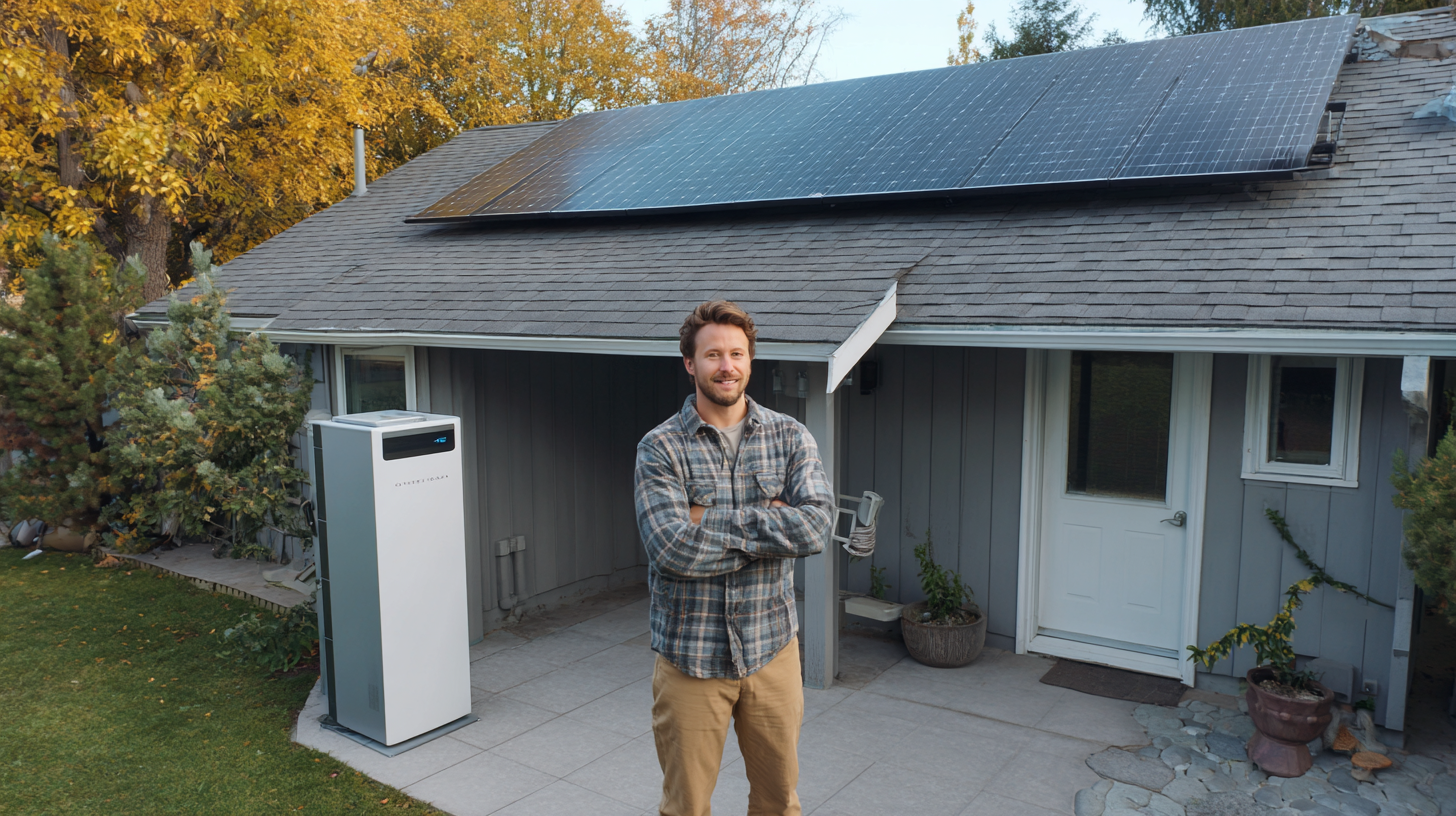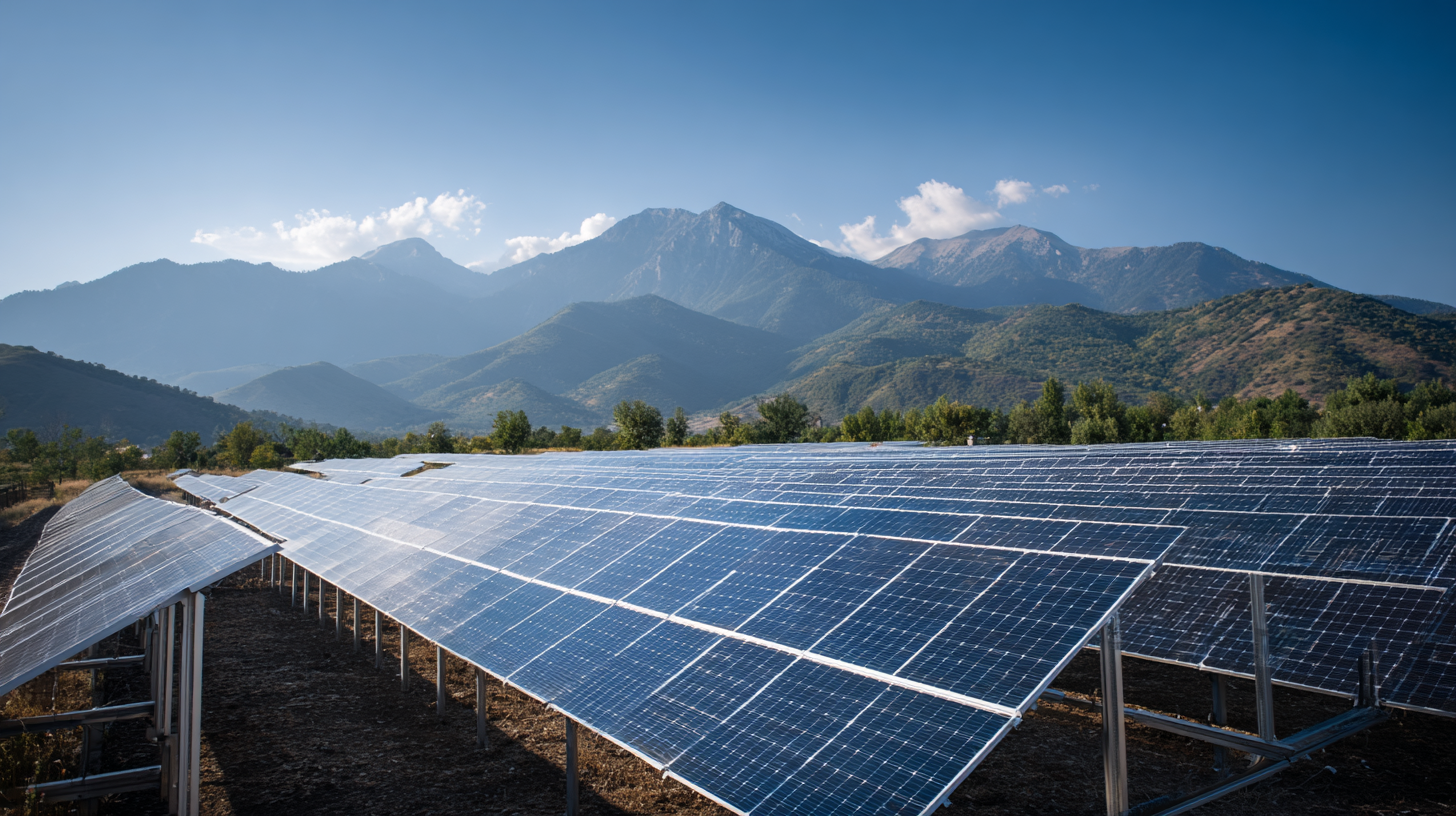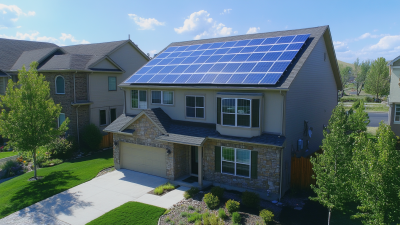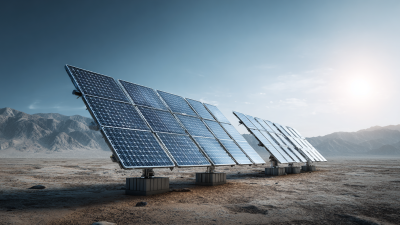How to Maximize Your Home's Energy Efficiency with Solar Systems Using Data Driven Solutions
In today’s quest for sustainability, maximizing your home's energy efficiency has become paramount, and Solar Systems have emerged as a crucial part of the solution. According to a report by the International Energy Agency (IEA), solar energy accounted for nearly 58% of all new renewable energy generation in 2020, highlighting its rapid growth and potential for widespread adoption. By implementing data-driven solutions, homeowners can significantly enhance energy efficiency and reduce reliance on fossil fuels. A study by the National Renewable Energy Laboratory (NREL) demonstrated that homes equipped with solar systems can cut their energy bills by up to 50%, while also increasing property values by about 4%. As we explore the integration of solar technology, it becomes evident that informed decision-making supported by robust data not only leads to cost savings but also contributes to a sustainable future.

Identifying Energy Efficiency Needs Through Home Energy Audits
Home energy audits are essential for identifying energy efficiency needs in any household. These comprehensive assessments involve a detailed inspection of a home's systems, appliances, insulation, and overall energy consumption patterns. By utilizing advanced diagnostic tools, auditors can pinpoint areas where energy is being wasted, such as outdated heating systems, inadequate insulation, or inefficient windows. This data-driven approach allows homeowners to understand their unique energy profiles, equipping them with the information needed to make informed decisions regarding improvements.
Once energy inefficiencies are identified, integrating solar solutions becomes a viable option to maximize energy efficiency. By analyzing the data gathered during the audit, homeowners can determine the optimal size and placement for solar panels, ensuring they harness as much sunlight as possible. Additionally, the audit helps in understanding how solar installations can reduce dependence on traditional energy sources and lower utility bills. Ultimately, a home energy audit not only highlights inefficiencies but also sets the foundation for a tailored solar strategy that enhances the home's energy performance and sustainability.

Leveraging Solar Technology to Optimize Energy Production
Leveraging solar technology to optimize energy production is essential for homeowners looking to maximize energy efficiency. According to a report by the National Renewable Energy Laboratory (NREL), incorporating advanced solar technologies can increase energy yield by up to 20%. Data-driven solutions, such as real-time monitoring systems, allow homeowners to assess energy consumption patterns and adjust their usage to coincide with peak solar generation times, thereby maximizing the benefits of their solar investments.
Tips for enhancing your solar energy system include implementing a smart energy management system that uses machine learning to predict energy needs and optimize production. Homeowners can significantly reduce their utility bills by adjusting their energy usage based on solar production data. Additionally, regular maintenance and cleaning of solar panels can improve efficiency. A study from the Solar Energy Industries Association (SEIA) found that dirty panels can lose up to 25% of their efficiency, making routine inspections and upkeep crucial for sustaining energy output.
By utilizing these data-driven strategies and embracing the latest solar technologies, homeowners can significantly enhance their energy production capabilities and lower their environmental impact, ultimately leading to a more sustainable and cost-effective home energy solution.
Maximizing Your Home's Energy Efficiency with Solar Systems
The chart below illustrates the potential energy savings from solar systems in various household scenarios. It compares energy production against energy consumption to highlight the efficiency gains.
Utilizing Smart Home Systems for Effective Energy Management
In today's world, integrating smart home systems with solar energy solutions has become essential for enhancing energy efficiency in residential settings. Smart home technology allows homeowners to monitor and control their energy consumption in real time. By utilizing devices such as smart thermostats, energy monitors, and automated lighting systems, residents can make informed decisions about their energy use, reducing waste and optimizing their solar energy generation. These systems can adjust settings based on weather patterns or personal routines, ensuring that energy consumption aligns with the production capacity of solar panels.
Moreover, the data collected from smart home systems can drive further improvements in energy management. By analyzing usage patterns and efficiency metrics, homeowners can identify which appliances are energy hogs and which times of day yield the best solar output. This information empowers homeowners to shift energy-intensive tasks to peak solar production times, maximizing the use of renewable energy and minimizing reliance on the grid. Smart home systems not only enhance comfort and convenience but also play a pivotal role in supporting sustainable living, enabling homeowners to take charge of their energy footprint while enjoying the benefits of solar power.
Implementing Data Analytics for Continuous Improvement in Energy Use
The implementation of data analytics for optimizing energy use in solar systems is increasingly vital as the world confronts pressing energy challenges. With the aerospace analysis market expected to escalate significantly, the demand for advanced energy solutions will only rise. AI technologies, while offering potential efficiencies, have sparked concerns over their substantial energy consumption. For instance, a single query using AI can consume nearly ten times the power of a traditional search, underscoring the urgency for data-driven strategies to enhance energy efficiency.
To combat the looming energy crisis, leveraging data analytics in solar energy systems can provide continuous improvements in performance and efficiency. Through real-time monitoring and predictive analytics, homeowners can optimize energy consumption patterns, reduce wastage, and ultimately lower their carbon footprints. This data-centric approach not only aligns with global climate governance efforts but also positions solar systems as essential players in the transition towards a sustainable energy future. As countries heed the calls for immediate action to mitigate climate change, innovative solutions grounded in data analytics will be crucial in fostering a more resilient energy landscape.
Exploring Financial Incentives and Rebates for Solar Energy Solutions
Exploring financial incentives and rebates for solar energy solutions can significantly enhance the overall affordability of installing solar systems in your home. Various government programs offer tax credits, grants, and rebates that can reduce the initial investment needed for solar installation. For instance, the Federal Investment Tax Credit (ITC) enables homeowners to deduct a substantial percentage of their solar system costs from their federal taxes, making solar energy more accessible to a larger audience. Additionally, some states and local governments provide their own incentives, which can further lower costs depending on your geographical location.
Moreover, utility companies often implement rebate programs for customers who switch to solar energy. These programs can range from direct cash incentives for installation to performance-based rebates that reward you over time based on the amount of energy your solar system produces. Engaging with local solar providers can help identify the best opportunities available in your area, as they are usually well-versed in the current financial incentives and can assist homeowners in navigating the application process. By leveraging these financial options, homeowners can not only offset costs but also contribute to a more sustainable energy future while maximizing their home's energy efficiency.

Related Posts
-

Innovative Approaches to Optimize Your Solar Solutions
-

Emerging Trends in Solar Technology Innovations for the Best Solar Systems by 2025
-

Navigating Import Export Certifications for the Best Solar Energy Products Worldwide
-

Unlocking the Advantages of Surface Water Pumps for Efficient Water Management
-

5 Innovative Reasons Why Solar Submersible Pumps Are Revolutionizing Water Management in 2023
-

Ultimate Checklist for Choosing the Best Solar Systems: Key Metrics and Expert Insights
Contact Details
Address:
Solar Pump Solutions,
Borrisokane, Co. Tipperary, Ireland.
